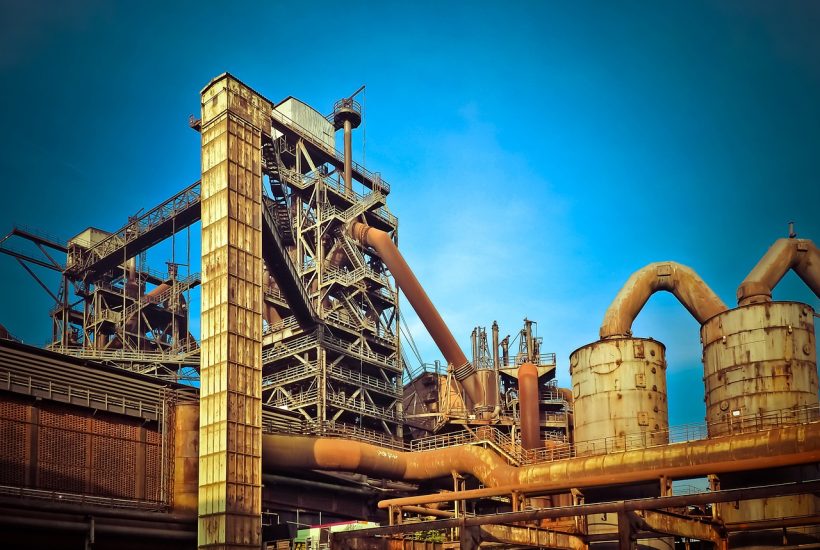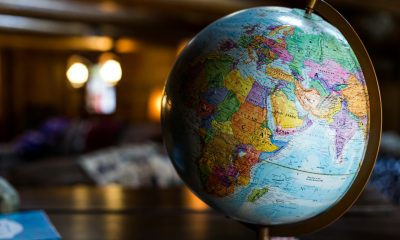Africa
Industrialization Has Increased in 37 African Countries in the Last Decade
The Africa Industrialization Index report provides an assessment of progress based on 19 key indicators covering industry performance, capital, labor, business environment, infrastructure and macroeconomic stability. The top six positions are held by South Africa (which maintained a very high ranking during the 2010-2021 period), followed by Morocco, Egypt, Tunisia, Mauritius, and Esuatini.

The level of industrialization in 37 countries on the African continent, out of a total of 52 analyzed, has increased over the past eleven years, the African Development Bank (ADB) reported Friday, November 25th.
According to the results of a new ADB report, together with the African Union (AU) and the UN Industrial Development Organization (UNIDO), North Africa remains the most advanced African region in terms of industrial development, followed by Southern Africa, Central Africa, West Africa, and East Africa.
If you want to read more about the progress African countries made in regard to industrialization, download for free our companion app. The Born2Invets mobile app brings you the most important economic news from around the world so you can stay on top of the market
Mozambique and Ethiopia are among the countries that made the most important progress in industrialization
The top six positions are held by South Africa (which maintained a very high ranking during the 2010-2021 period), followed by Morocco, Egypt, Tunisia, Mauritius, and Esuatini, the ADB has explained in a note.
However, the countries that made the most progress were Djibouti, Benin, Mozambique, Senegal, Ethiopia, Guinea-Conakry, Rwanda, Tanzania, Ghana, and Uganda.
The Africa Industrialization Index report provides an assessment of progress based on 19 key indicators covering industry performance, capital, labor, business environment, infrastructure and macroeconomic stability.
Among the paper’s findings is that “the best performing countries are not necessarily those with the largest economies, but those with the highest manufacturing value added per capita, with a high proportion of products manufactured for export.”
“The report will enable African governments to identify benchmark countries to better assess their own industrial performance and identify best practices more effectively,” the ADB said in the release.
“Building productive industry will be critical to Africa’s development, as it will provide a pathway to accelerate structural transformation, large-scale formal job creation, and inclusive growth,” it has added.
Africa’s share of the global manufacturing sector has fallen below the current 2%, which is why ADB believes “more proactive industrial policies are imperative, but require in-depth knowledge and a detailed understanding of each country’s constraints and opportunities.”
Abdu Mukhtar, ADB’s Director of Industrial and Trade Development, recalled that while Africa has made encouraging progress in industrialization in the 2010-2022 period, the covid-19 pandemic and the war in Ukraine have hampered efforts and exposed weaknesses in production systems.
“The continent has a unique opportunity to address this dependence by strengthening its integration and gaining its own emerging markets,” he has said in highlighting the African Continental Free Trade Area (ETR:CONG) (AfCFTA) as “a groundbreaking opportunity to create a single market of 1.3 billion people and generate cumulative consumer and business spending of up to $4 trillion.”
__
(Featured image by 652234 via Pixabay)
DISCLAIMER: This article was written by a third party contributor and does not reflect the opinion of Born2Invest, its management, staff or its associates. Please review our disclaimer for more information.
This article may include forward-looking statements. These forward-looking statements generally are identified by the words “believe,” “project,” “estimate,” “become,” “plan,” “will,” and similar expressions. These forward-looking statements involve known and unknown risks as well as uncertainties, including those discussed in the following cautionary statements and elsewhere in this article and on this site. Although the Company may believe that its expectations are based on reasonable assumptions, the actual results that the Company may achieve may differ materially from any forward-looking statements, which reflect the opinions of the management of the Company only as of the date hereof. Additionally, please make sure to read these important disclosures.
First published in Investing.com, a third-party contributor translated and adapted the article from the original. In case of discrepancy, the original will prevail.
Although we made reasonable efforts to provide accurate translations, some parts may be incorrect. Born2Invest assumes no responsibility for errors, omissions or ambiguities in the translations provided on this website. Any person or entity relying on translated content does so at their own risk. Born2Invest is not responsible for losses caused by such reliance on the accuracy or reliability of translated information. If you wish to report an error or inaccuracy in the translation, we encourage you to contact us.

-

 Markets3 days ago
Markets3 days agoRice Market Slips as Global Price Pressure and Production Concerns Grow
-

 Crypto2 weeks ago
Crypto2 weeks agoBitcoin Wavers Below $70K as Crypto Market Struggles for Momentum
-

 Biotech4 hours ago
Biotech4 hours agoInterministerial Commission on Drug Prices Approves New Drugs and Expanded Treatment Funding
-

 Africa1 week ago
Africa1 week agoMorocco’s Tax Reforms Show Tangible Results


















